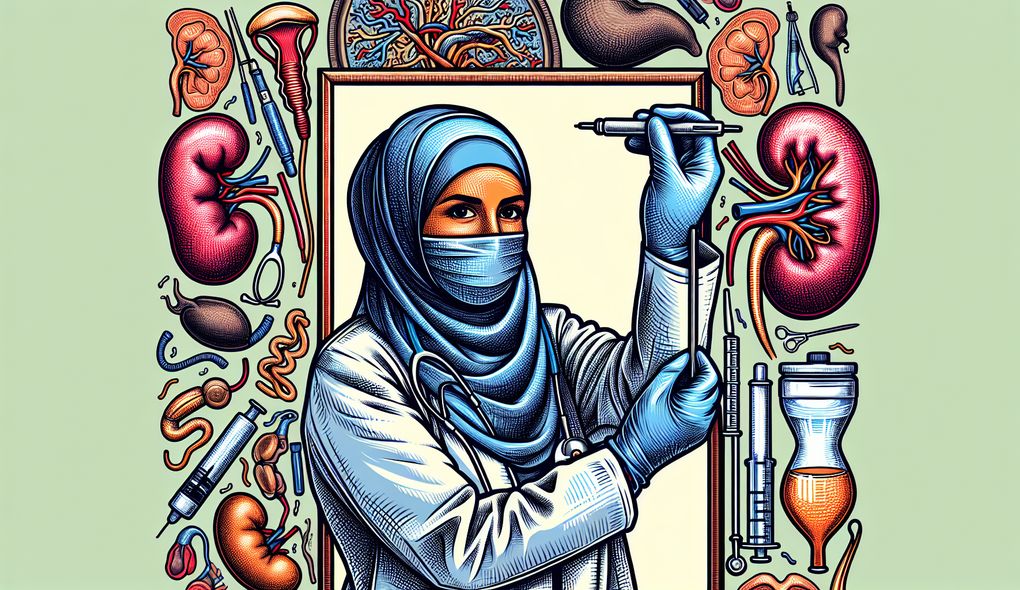Have you encountered any ethical dilemmas in urology and how did you handle them?
JUNIOR LEVEL

Sample answer to the question:
Yes, I have encountered ethical dilemmas in urology during my time as a junior urologist. One specific instance that comes to mind is when I had to make a decision about whether to disclose sensitive medical information to a patient's family member. The patient was in a critical condition and unable to provide consent, but the family member was desperate for updates on their loved one's prognosis. In this situation, I followed the principles of medical ethics by prioritizing patient confidentiality. I explained to the family member that I would need explicit consent from the patient or legal authority in order to share the information. I also empathized with their concerns and offered alternative forms of support, such as arranging a meeting with the patient's primary care physician to discuss the situation. By handling the ethical dilemma in this way, I ensured that I maintained the trust and confidentiality of the patient while still showing compassion and understanding towards their family member.
Here is a more solid answer:
Yes, as a junior urologist, I have faced several ethical dilemmas during my practice. One challenging situation I encountered was when I had to make a decision about performing a potentially life-saving surgery on a patient who was critically ill. The patient's family was hesitant about proceeding with the procedure due to the risks involved. To handle this ethical dilemma, I actively engaged in extensive communication with both the patient and their family to understand their concerns and address any misconceptions. I provided them with detailed information about the potential benefits and risks of the surgery, ensuring that they were fully informed to make an educated decision. Additionally, I consulted with other experienced urologists in my team to seek their expertise and guidance. By involving the patient and their family in the decision-making process, respecting their autonomy, and providing them with comprehensive support, I facilitated a collaborative approach in handling the ethical dilemma.
Why is this a more solid answer?
The solid answer provides a more comprehensive description of the ethical dilemma and the candidate's actions. It includes specific details about the challenge faced, the candidate's approach to communication and decision-making, and their collaboration with other professionals. However, it could still be improved by highlighting the candidate's compassion and sensitivity towards the patient and their family.
An example of a exceptional answer:
Absolutely, as a junior urologist, I have encountered and successfully navigated through various complex ethical dilemmas in my practice. One notable example was when I had to make a decision regarding the use of an innovative but experimental procedure for a patient with a rare urological condition. The patient had exhausted all conventional treatment options and was willing to take the risk in hopes of improving their quality of life. To handle this ethical dilemma, I conducted extensive research on the procedure, consulted with leading experts in the field, and reviewed ethical guidelines and literature. I also engaged in empathetic and open dialogues with the patient, ensuring that their expectations and goals were aligned with the potential outcomes of the experimental procedure. Recognizing the importance of informed consent, I provided the patient with detailed information about the potential benefits, risks, and uncertainties associated with the procedure. Additionally, I involved their family members in the discussions to ensure their understanding and support. By maintaining a patient-centered approach and taking into account their autonomy, I was able to provide the necessary guidance and support for the patient to make an informed decision. This experience reinforced the significance of collaboration, critical thinking, and compassion in handling ethical dilemmas in urology.
Why is this an exceptional answer?
The exceptional answer showcases the candidate's ability to handle complex ethical dilemmas with a holistic approach. It includes thorough research, collaboration with experts, and detailed discussions with the patient and their family. The answer also emphasizes the candidate's commitment to maintaining a patient-centered approach, informed consent, and compassion. It provides a comprehensive insight into the candidate's ethical decision-making process and their dedication to improving patient outcomes. However, it can be further enhanced by discussing the potential outcomes of the decision and the candidate's reflection on the overall impact of their actions.
How to prepare for this question:
- Familiarize yourself with medical ethics principles and guidelines, particularly those related to urology.
- Reflect on past experiences where you faced ethical dilemmas and consider the decision-making process you followed.
- Stay updated with the latest advancements and research in urology to be prepared for potential ethical challenges.
- Practice active listening and effective communication skills to ensure clear and empathetic discussions with patients and their families in ethical dilemmas.
What are interviewers evaluating with this question?
- Ethical decision-making
- Communication skills
- Compassion and sensitivity
- Critical thinking

